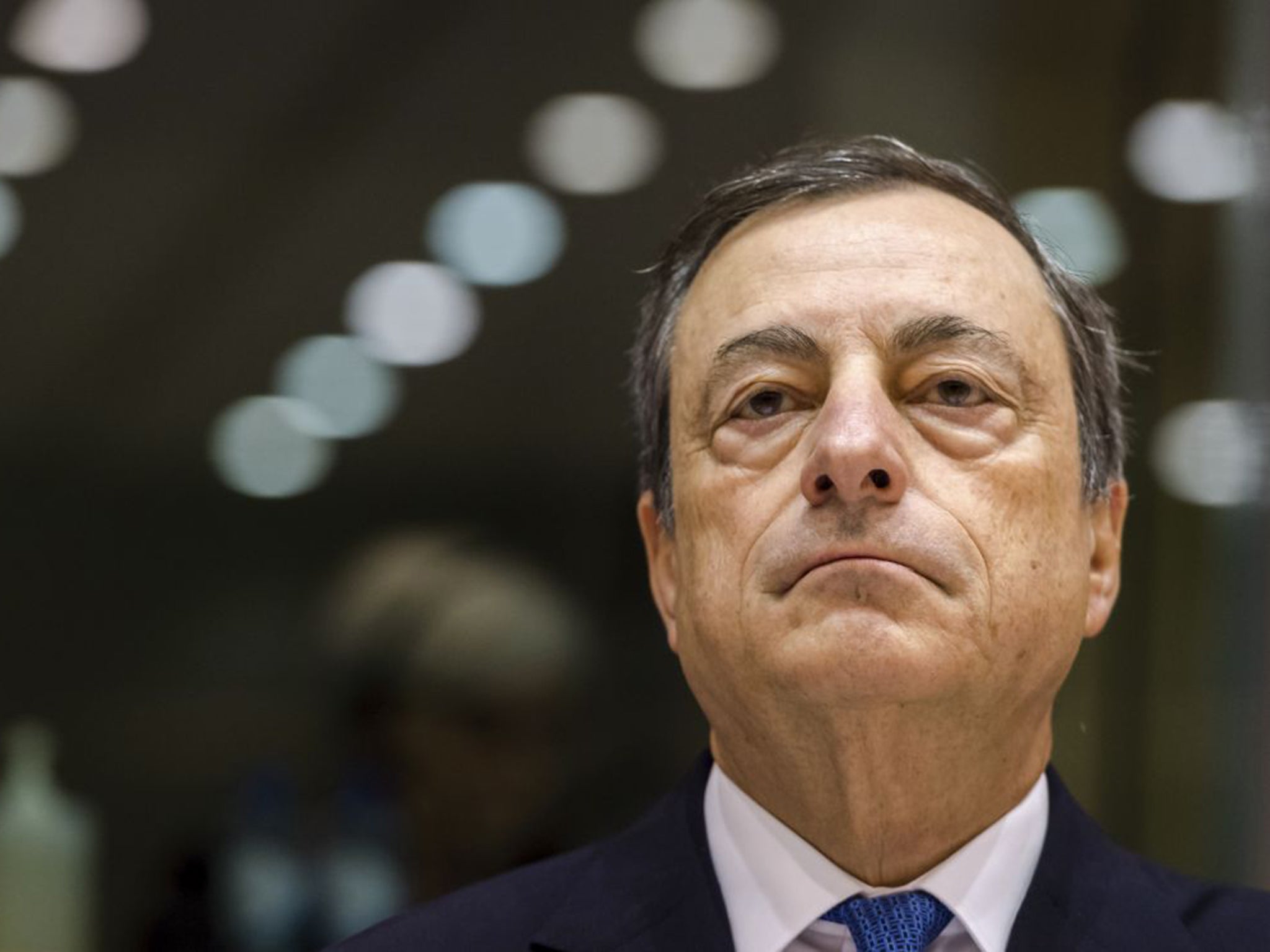Mario Draghi: ECB chief signals further monetary easing as deflation fears grow
Mr Draghi said 'signs of a sustained turnaround in core inflation have somewhat weakened'

More monetary easing is coming for the eurozone, the President of the European Central Bank (ECB) has signalled.
Mario Draghi, speaking to the European Parliament, said “signs of a sustained turnaround in core inflation have somewhat weakened” and the ECB will re-examine the case for more financial stimulus next month. Mr Draghi added that “the option of doing nothing would go against price stability”.
The remarks were described as “unequivocally dovish” by Marchel Alexandrovich at the investment bank Jefferies and at one point they sent the euro down to $1.069, although the single currency later rebounded.
Earlier this year the ECB committed to buying €1.1trn (£780bn) of eurozone government bonds by December 2016, in order to break the grip of deflation in the eurozone. At the moment the central bank is buying €60bn of government bonds and other securities each month
“We have always said our purchases would run beyond end-September 2016 in case we do not see a sustained adjustment in the path of inflation that is consistent with our aim of achieving inflation rates below but close to 2 per cent,” Mr Draghi said.
Annual eurozone inflation was 0 per cent in October, a mild improvement on the -0.1 per cent deflation in September but well below the ECB’s target of just below 2 per cent. Core inflation was 1 per cent, up from 0.9 per cent.
Among the easing options likely to be considered by the ECB are increasing the number of bond purchases each month, or expanding the range. Mr Alexandrovich speculated that there was disagreement within the central bank over the best approach.
“One reason the ECB may be finding it difficult to reach a consensus is because the theory of how quantitative easing works may not be matching up to what actually happens in the real world,” he said.
Andy Haldane, the Bank of England’s chief economist, also sounded a dovish note in a speech to the TUC: “My view is that the case for raising interest rates is still some way from being made.”
Subscribe to Independent Premium to bookmark this article
Want to bookmark your favourite articles and stories to read or reference later? Start your Independent Premium subscription today.

Join our commenting forum
Join thought-provoking conversations, follow other Independent readers and see their replies